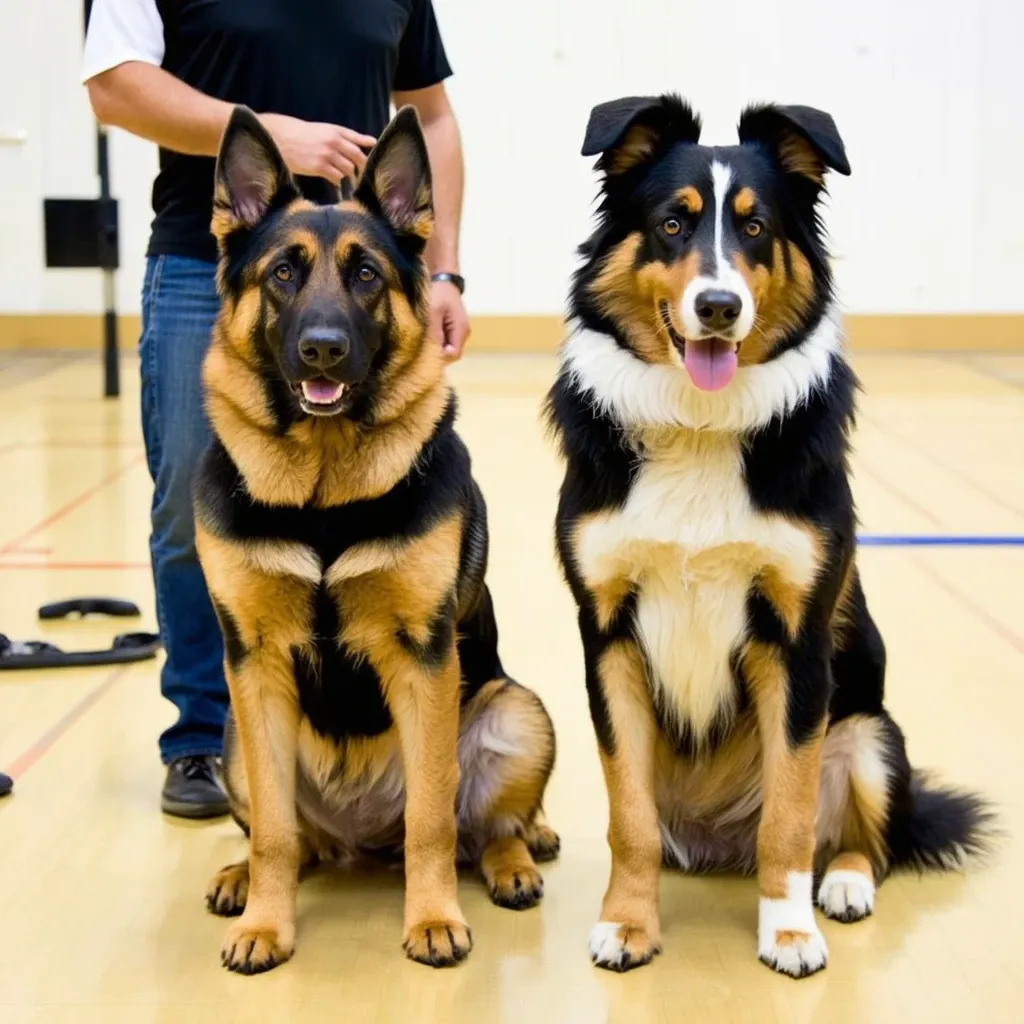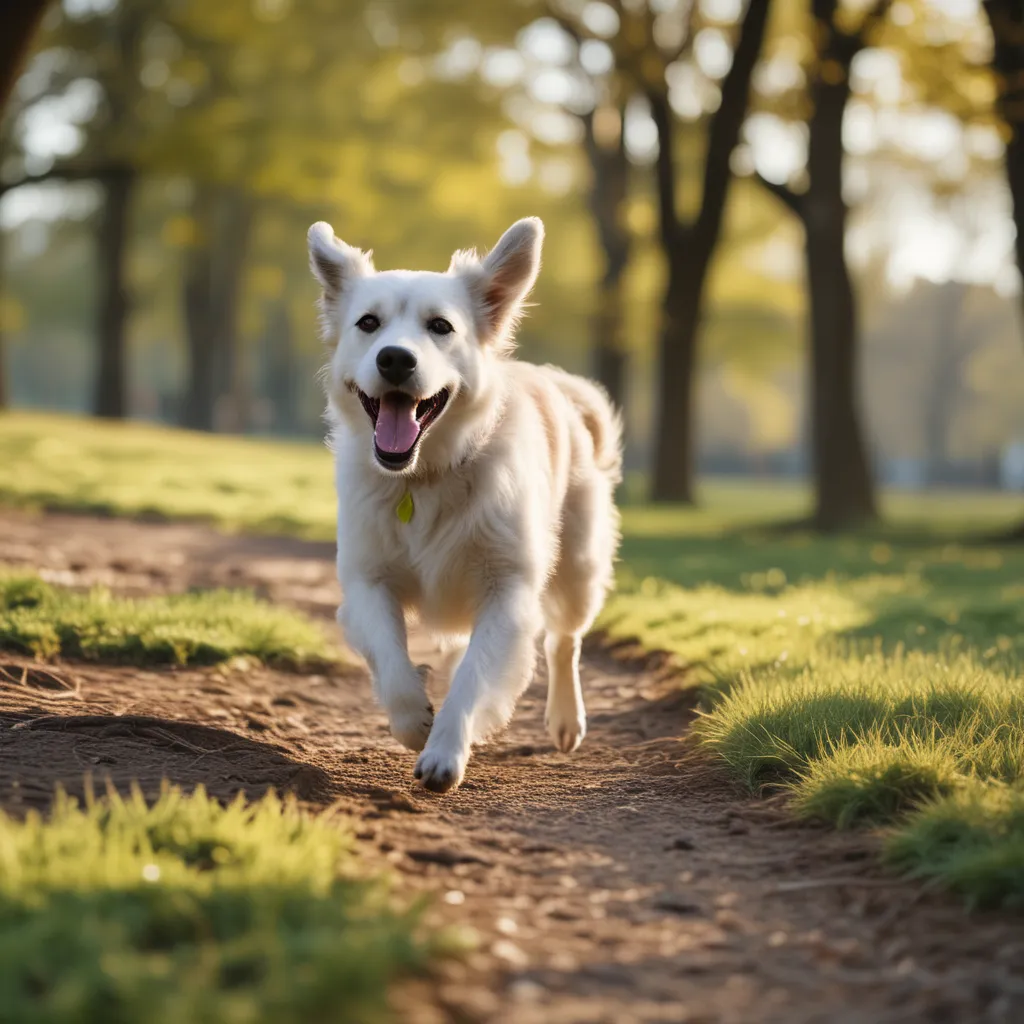Introduction
When it comes to dog breeds, obedience is a key trait that many dog owners value. Obedient dog breeds are not only easier to train but also tend to form strong, harmonious relationships with their owners. But what makes a dog breed obedient, and which breeds are the most obedient of all? In this article, we’ll explore the answers to these questions and more, including the top dog breeds for obedience and the benefits of having an obedient dog.
From the intelligent and responsive German Shepherd to the highly trainable Border Collie, some dog breeds are naturally more inclined to obey commands and please their owners. But obedience is not just about breed – it’s also about training, socialization, and the bond between dog and owner.
In this article, we’ll delve into the world of obedient dog breeds, exploring what makes them tick and how you can encourage obedience in your own furry friend. Whether you’re a seasoned dog owner or just starting out, you’ll learn valuable insights and tips on how to build a strong, obedient relationship with your dog.
So, what’s the most obedient dog breed of all? Let’s dive in and find out.

What Makes a Dog Breed Obedient?
When it comes to obedience, dog breeds can vary greatly. While some breeds are naturally more inclined to follow commands, others may require more training and socialization. So, what makes a dog breed obedient?
One key factor is breeding history. Breeds that were originally developed for working purposes, such as herding or hunting, tend to be more obedient due to their innate desire to please their human companions. These breeds, such as German Shepherds and Belgian Tervurens, have been bred to respond to commands and work alongside humans.
Another important factor is intelligence. Breeds that are highly intelligent, such as Labradors and Golden Retrievers, are more likely to be obedient as they can quickly understand and respond to commands.
Training and socialization also play a crucial role in a dog’s obedience. Dogs that are well-trained and socialized from an early age are more likely to be obedient, regardless of their breed.
Additionally, a dog’s temperament and personality can also influence their obedience. Dogs that are more eager to please and have a strong desire to bond with their human companions tend to be more obedient.

In conclusion, a dog breed’s obedience is influenced by a combination of breeding history, intelligence, training, socialization, and temperament. Understanding these factors can help dog owners and trainers develop effective training strategies to bring out the best in their canine companions.
Top Dog Breeds for Obedience
When it comes to obedience, some dog breeds stand out from the rest. These breeds are known for their intelligence, loyalty, and trainability, making them ideal for obedience training. Here are some of the top dog breeds for obedience:
1. German Shepherd
The German Shepherd is one of the most popular breeds for obedience training. They are highly intelligent, loyal, and responsive to commands. With proper training, they can excel in agility, tracking, and other dog sports.
2. Golden Retriever
Golden Retrievers are known for their friendly, intelligent, and eager-to-please nature, making them a popular choice for obedience training. They are quick learners and thrive on positive reinforcement.
3. Doberman Pinscher
Doberman Pinschers are highly intelligent and athletic dogs that excel in obedience training. They are loyal and responsive to their owners, making them a popular choice for police and military work.
4. Poodle
Poodles are highly intelligent and responsive to commands, making them a popular choice for obedience training. They come in a variety of sizes, from Toy to Standard, making them a great option for owners with varying lifestyles.
5. Border Collie
Border Collies are highly intelligent and energetic dogs that thrive on mental and physical stimulation. They are highly responsive to commands and excel in agility, herding, and other dog sports.
6. Rottweiler
Rottweilers are powerful, intelligent, and loyal dogs that respond well to obedience training. They are often used as police dogs, search and rescue dogs, and therapy dogs.
7. Shetland Sheepdog
Shetland Sheepdogs, also known as Shelties, are highly intelligent and responsive to commands. They are loyal and loving companions that thrive on positive reinforcement and obedience training.
8. Papillon
Papillons are small, intelligent, and friendly dogs that excel in obedience training. They are highly responsive to commands and thrive on positive reinforcement.
The Impact of Training and Socialization on Obedience
Training and socialization are two crucial factors that significantly impact a dog’s obedience. While genetics play a role in a dog’s temperament and intelligence, proper training and socialization can make a huge difference in a dog’s behavior and responsiveness to commands.
Socialization, in particular, is critical during a puppy’s early stages of development. Between 8 and 11 weeks old, puppies are most receptive to new experiences and are more likely to form positive associations with new people, dogs, and environments. This period is often referred to as the “socialization window.” During this time, puppies that are exposed to a variety of stimuli are more likely to develop good social skills and be more confident in new situations.
Training, on the other hand, helps to reinforce good behavior and teaches a dog to respond to commands. Positive reinforcement training methods, such as clicker training, are highly effective in encouraging desired behaviors and discouraging undesired ones. Consistency, patience, and positive reinforcement are key to successful training.
The combination of proper training and socialization can have a profound impact on a dog’s obedience. A well-socialized dog is more likely to be calm and confident in new situations, making it easier to train and more responsive to commands. A dog that is well-trained and well-socialized is more likely to be obedient and well-behaved, even in challenging situations.

In conclusion, training and socialization are essential components of raising an obedient dog. By providing a puppy with a solid foundation in socialization and training, owners can set their dogs up for success and help them become well-behaved and responsive companions.
The Benefits of Having an Obedient Dog
Having an obedient dog is a dream come true for many dog owners. The benefits of having an obedient dog extend far beyond simple commands. They shape a harmonious partnership that benefits both you and your four-legged friend.
One of the most significant benefits of having an obedient dog is a closer bond with your dog. Statistics show that owners with behaviorally sound pets get more satisfaction and have a stronger bond with their pet. This bond is built on trust, respect, and clear communication, which is essential for a happy and healthy relationship.
Obedience training also provides mental stimulation, improves behavior, and enhances overall well-being for dogs. It helps dogs understand and respond to commands, reducing stress and anxiety. Moreover, obedience training keeps your dog safe by teaching them to respond to critical commands like “stay” and “come.”
Another significant advantage of having an obedient dog is the increased opportunities for socialization. A well-behaved dog is a pleasure to take out in public, and they can participate in various dog-friendly activities, such as hiking, agility training, and even therapy work.
In addition, obedience training can help reduce problem behaviors like barking, chewing, and digging. By teaching your dog to respond to commands, you can redirect their energy and attention to more positive activities.
Lastly, having an obedient dog can also improve your mental and physical health. Studies have shown that dog owners who participate in obedience training with their dogs experience reduced stress levels, improved mood, and increased physical activity.

Conclusion
In conclusion, obedience is a vital aspect of a dog’s behavior, and understanding what makes a dog breed obedient is crucial for any dog owner. From the top dog breeds for obedience to the impact of training and socialization, we’ve explored the key factors that contribute to a dog’s obedience. Having an obedient dog can bring numerous benefits, including a stronger bond between dog and owner, improved communication, and a safer environment for everyone.
Remember, obedience is not just about following commands; it’s about building trust, respect, and a deeper connection with your furry friend. By recognizing the importance of obedience and investing time and effort into training and socialization, you can unlock the full potential of your dog and enjoy a more harmonious and fulfilling relationship.

References
- https://www.akc.org/expert-advice/training/puppy-socialization
- https://www.dogster.com/dog-health-care/major-benefits-of-training-your-do
- https://www.akc.org/expert-advice/training/basic-obedience-training-for-your-dog
- https://www.akc.org/expert-advice/dog-breeds/13-of-the-most-trainable-breeds
- https://www.akc.org/expert-advice/health/training-your-senior-dog
















